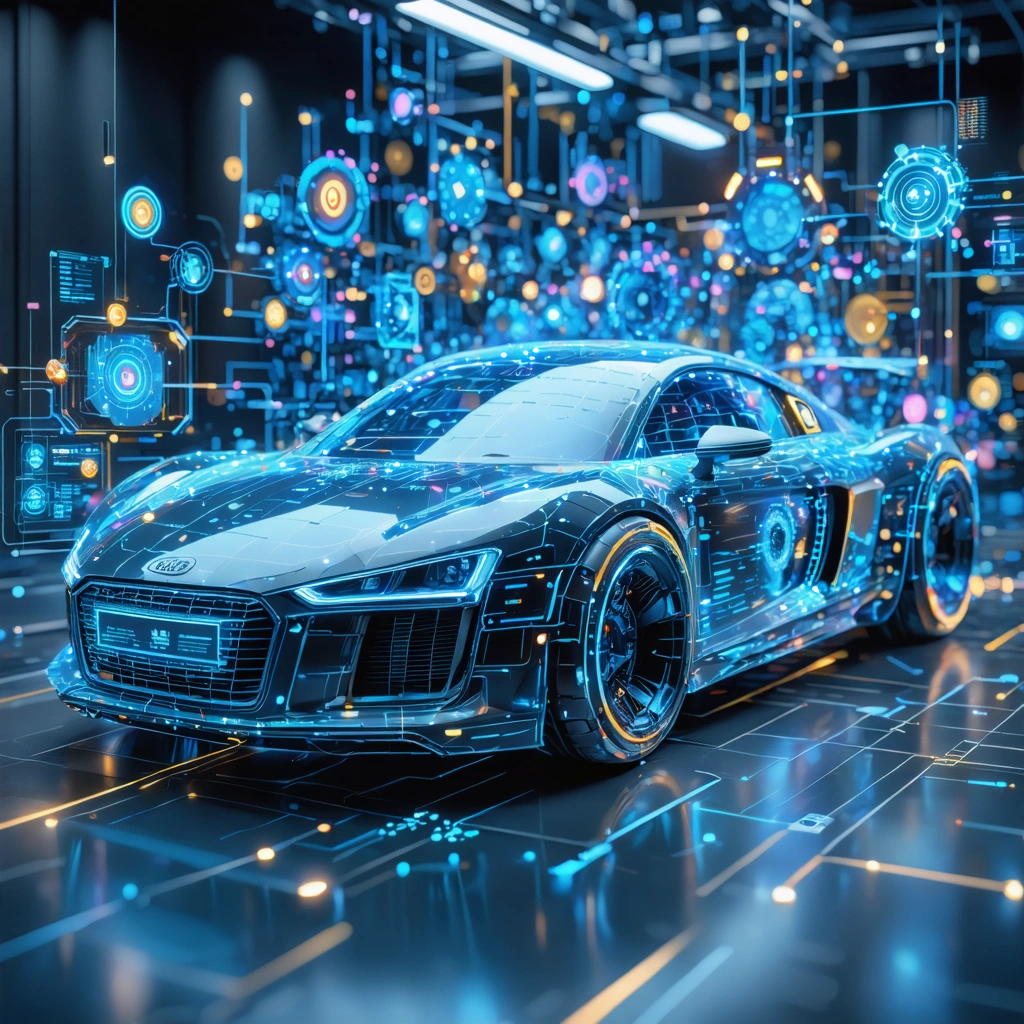
Introduction
The automotive industry has undergone a profound transformation over the past decade, driven by advances in artificial intelligence (AI). From the integration of machine learning algorithms in vehicle manufacturing to the implementation of generative AI techniques that revolutionize design processes, the industry is now at the forefront of technological evolution. This article explores how AI is reshaping the auto sector, highlighting key innovations, business impacts, and future trends.
Understanding AI in the Automotive Landscape
Evolution of AI Technologies
The evolution of AI within the auto industry is a story of gradual integration and breakthrough developments. Initially, traditional automation and robotics were used to streamline production processes. However, with advancements in machine learning and generative AI, manufacturers now have tools that can predict maintenance issues, optimize supply chains, and even design new vehicle components more efficiently.
- Machine Learning: Utilized for predictive maintenance, quality control, and real-time monitoring of manufacturing processes.
- Generative AI: Assists in innovative design by simulating and testing various vehicle components and configurations before physical production begins.
- Computer Vision: Enhances safety systems by providing real-time data analysis to support advanced driver-assistance systems (ADAS).
Generative AI vs. Traditional Machine Learning
The distinction between generative AI and traditional machine learning is integral to understanding positive changes in the auto industry:
- Traditional machine learning focuses on data sorting and pattern recognition, allowing systems to predict outcomes based on historical data.
- Generative AI, by contrast, enables the creation of new configurations and designs through complex simulations, thereby reducing the time required for prototyping and testing.
These differences underline why companies are increasingly investing in generative techniques to secure a competitive edge in both innovation and efficiency.
Applications of AI in the Auto Industry
Intelligent Manufacturing
In manufacturing, AI enhances productivity and minimizes errors by automating routine tasks and providing real-time analytics. Some of the key areas include:
- Quality Assurance: AI-powered visual inspection systems identify defects at early stages, reducing waste and ensuring superior quality.
- Supply Chain Management: Intelligent systems predict demand fluctuations, streamline inventory management and minimize production delays.
- Custom Production: Adaptive manufacturing processes allow for personalization of vehicles without incurring significant cost increases.
Autonomous and Connected Vehicles
One of the most groundbreaking areas of AI application is in the development of autonomous vehicles. These self-driving cars rely on sophisticated algorithms and deep neural networks to analyze real-time data, enabling safe and efficient navigation. The key benefits include:
- Increased road safety through enhanced sensor integration.
- Reduction in traffic congestion due to optimized driving strategies.
- Enhanced connectivity that paves the way for smart city integrations.
Smart Maintenance and Post-Purchase Services
AI also finds significant application in predictive maintenance and customer service. By collecting and analyzing vehicle performance data, manufacturers can predict failures before they occur, schedule timely repairs, and ultimately improve the lifespan of the automobiles.
Business Impact and Future Trends
Driving Efficiency in Production and Operations
Implementing AI-driven technologies in production facilities contributes significantly to operational efficiency. Advanced robotics controlled by machine learning algorithms have minimized human error, streamlined production lines, and resulted in the following benefits:
| AI Application | Impact | Benefit |
|---|---|---|
| Predictive Maintenance | Early Fault Detection | Cost Savings & Downtime Reduction |
| Supply Chain Optimization | Real-Time Analytics | Increased Responsiveness |
| Generative Design | Innovative Prototyping | Accelerated R&D Process |
These improvements not only enhance the operational workflow but also translate into a significant competitive advantage in a challenging economic environment.
Innovation and Research & Development (R&D)
AI is a catalyst for continuous innovation. Automotive companies are investing heavily in research to develop AI-powered features that cater to evolving customer needs. Key areas of focus include:
- Energy Efficiency: Using AI to optimize fuel consumption and electric vehicle battery performance.
- Enhanced Safety Systems: Integrating AI with vehicle sensors and cameras to better predict and respond to traffic hazards.
- Advanced Ergonomics: Developing intelligent systems that adapt vehicle controls and interfaces to individual driver habits.
Additionally, collaborations between tech giants, startups, and traditional automakers are becoming increasingly common. This cross-industry cooperation ensures a rapid exchange of ideas, faster technological breakthroughs, and sustained growth in AI capabilities.
Market Implications and Strategic Directions
The integration of AI is reshaping the market dynamics of the auto industry. Here are several strategic directions illuminated by this transformation:
- Customer-Centric Models: AI enables a more personalized approach, offering tailored services and products based on consumer behavior patterns.
- Global Competitiveness: Nations and companies that invest in AI technologies position themselves to lead in the next generation of automotive innovations.
- Sustainable Growth: By leveraging AI for efficient operations and reduced waste, the industry can achieve significant progress towards sustainability targets.
Looking ahead, the convergence of AI with other emerging technologies such as the Internet of Things (IoT) and 5G is expected to accelerate changes in the auto landscape, fostering an ecosystem where real-time data integration drives all aspects of vehicle design, production, and post-sales services.
In conclusion, AI is not just a tool in the automotive sector but a transformative force that reshapes every aspect of the industry from design to delivery. With its ability to improve efficiency, safety, and innovation, AI continues to influence strategic decision-making on a global scale. As companies harness the power of AI, future automobiles will be smarter, safer, and more sustainable, setting new standards for mobility and performance in a rapidly evolving world.




